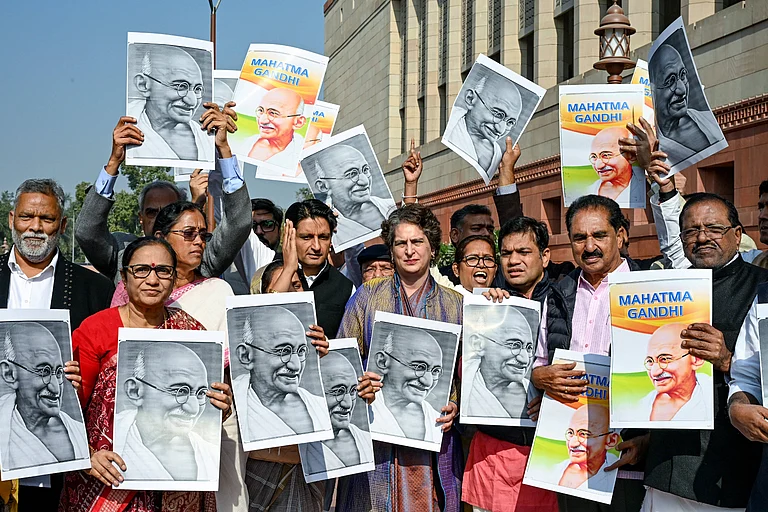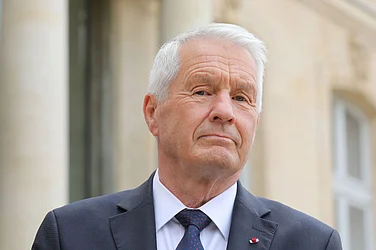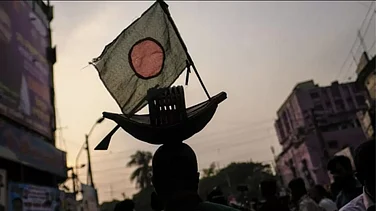The echo of Haka reverberated from a bench and New Zealand' parliament, erupted in protest.
The country's youngest MP Hana-Rawhiti Maipi-Clarke of Te Pati Maori stood and began a ringing haka as a form of dissent towards the controversial proposed law - Treaty of Waitangi signed years back between Indigenous Maori and the British Crown regarding land rights of the tribals.
Following Maipi-Clarke ringing haka – a rhythmic Maori chant of challenge, it led to a roar from the opposition lawmakers and the spectators and ultimately her suspension from the parliament for the day.
The video of the protest went viral as netizens called the performance 'powerful' and 'brave'. Several social media users belonging to minority communities across the globe resonated with the appeal as well.
According to Associated Press report, the bill will proceed to a public submission process before another vote at the parliament.
History Behind Treaty Of Waitangi & Why Is It Problematic?
The Treaty of Waitangi signed in 1840 ensures that the Maori tribe received their lands and protect their interests and culture in return for the British Crown to rule their government. Over the years, the differences between the English and Maori versions of the treaty, along with breaches by the New Zealand government, worsened the disenfranchisement of Maori.
According to AP, by the middle of the 20th century, Indigenous language and culture had dwindled, much tribal land was confiscated and Maori were disadvantaged on every metric. As the Indigenous protest movement surged in the 1970s, lawmakers and the courts slowly began to elucidate what it understood the treaty to promise Maori: partnership with the Crown, participation in decision-making and protection of their interests.
David Seymour, leader of minor libertarian party ACT and the bill's author told AP, “What all of these principles have in common is that they afford Maori different rights from other New Zealanders."
He further explained that the supporters of the Treaty of Waitangi have focused on billion-dollar land settlements, promoting the Maori language, ensuring Maori representation in government and addressing Indigenous inequalities.
However, Maori MP Seymour argued that no law or court had clearly defined the Treaty’s principles, which has caused division. He claimed his bill aimed to fill this gap, addressing an issue left unresolved by Parliament for fifty years.
The bill has scant support and is unlikely to become law, reportedly.
Despite its unpopularity, however, the proposed law passed its first vote on Thursday after dominating public discussion for months.
The bill reflects concerns among some New Zealanders about the rapid progress made in recent years toward fulfilling the Treaty’s promises to Maori following the country’s colonization.
Who Is Hana-Rawhiti Maipi-Clarke?
Hana-Rawhiti Maipi-Clarke of Te Pati Maori became the youngest MP of New Zealand at the age of 21. During an interview with The Guardian, Maipi-Clarke said that she does not see herself as a politician and explained she thinks her role as a kaitiaki (guardian) for Māori language, the land and for traditional knowledge is much more important and she believed that it is time that the voice of her tribe be heard by the rest of the country and the world.
When she joined the parliament in 2023, during her inaugural address she performed a traditional greeting or 'Maori Haka' where she was heard saying, "I will die for you ... but I will [also] live for you."
What is ‘Maori Haka’?
The Haka dance of the Maori tribe was reportedly performed to encourage the fighters at a battlefield as it displays physical strength and becomes a symbol of the cultural pride, unity and resilience.
Reportedly, the haka is not a dance form but "chanting, vigorous movements like stamping, hand gestures, and facial expressions". It also narrates significant events of the history of the tribe.
In the recent times as performed by Maipi-Clarke in events of her first day at parliament and again to protest against a controversial bill, Haka has become a symbol, of reverence.


























